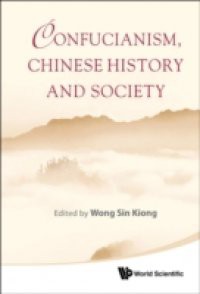Confucianism, Chinese History and Society is a collection of essays authored by world renowned scholars on Chinese studies, including Professor Ho Peng Yoke (Needham Research Institute), Professor Leo Ou-fan Lee (Harvard University), Professor Philip Y S Leung (Chinese University of Hong Kong), Professor Liu Ts'un-Yan (Australian National University), Professor Tu Wei-Ming (Harvard University), Professor Wang Gungwu (National University of Singapore) and Professor Yue Daiyun (Peking University). The volume covers many important themes and topics in Chinese Studies, including the Confucian perspective on human rights, Nationalism and Confucianism, Confucianism and the development of Science in China, crisis and innovation in contemporary Chinese cultures, plurality of cultures in the context of globalization, and comparative study of the city cultures in modern China. These essays were originally delivered at the Professor Wu Teh Yao Memorial Lectures. Wu Teh Yao (1917–1994) was an educator, political scientist, specialist in Confucianism and original drafter of the United Nation's Universal Declaration of Human Rights.Sample Chapter(s)Foreword (68 KB)Chapter 1: A Confucian Perspective on Human Rights (170 KB)Contents:A Confucian Perspective on Human Rights (Tu Wei-Ming)Nationalism and Confucianism (Wang Gungwu)Did Confucianism Hinder the Development of Science in China? (Ho Peng Yoke)East Meets West: The Impact on China and Her Response (Liu Ts'un-Yan)Across Translingual Landscape: Crisis and Innovation in Contemporary Chinese Cultures (Leo Ou-fan Lee)Zheng He: Navigator, Discoverer, and Diplomat (Chin Ling-Yeong)Plurality of Cultures in the Context of Globalization and a New Perspective of Comparative Literature (Yue Daiyun)The Scientific Merit of Educational Studies (Cho-Yee To)In the Beginning: Searching for Childhood in Chinese History and Philosophy (Hsiung Ping-Chen)The Walls and Waters: A Comparative Study of the City Cultures in Modern China — Beijing, Shanghai and Hong Kong (Philip Y S Leung)Readership: Students on China studies, History of China and Confucianism; and general public and professionals who are interested in China and Confucianism.

